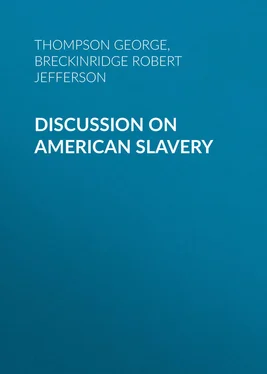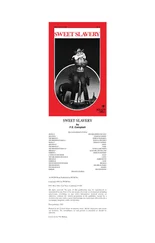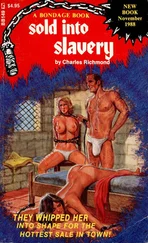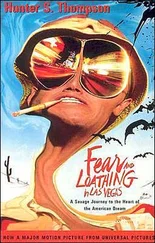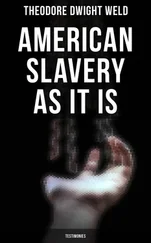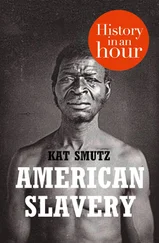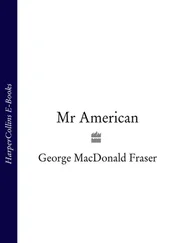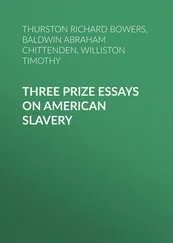George Thompson - Discussion on American Slavery
Здесь есть возможность читать онлайн «George Thompson - Discussion on American Slavery» — ознакомительный отрывок электронной книги совершенно бесплатно, а после прочтения отрывка купить полную версию. В некоторых случаях можно слушать аудио, скачать через торрент в формате fb2 и присутствует краткое содержание. ISBN: , Жанр: foreign_antique, foreign_prose, на английском языке. Описание произведения, (предисловие) а так же отзывы посетителей доступны на портале библиотеки ЛибКат.
- Название:Discussion on American Slavery
- Автор:
- Жанр:
- Год:неизвестен
- ISBN:http://www.gutenberg.org/ebooks/32500
- Рейтинг книги:4 / 5. Голосов: 1
-
Избранное:Добавить в избранное
- Отзывы:
-
Ваша оценка:
- 80
- 1
- 2
- 3
- 4
- 5
Discussion on American Slavery: краткое содержание, описание и аннотация
Предлагаем к чтению аннотацию, описание, краткое содержание или предисловие (зависит от того, что написал сам автор книги «Discussion on American Slavery»). Если вы не нашли необходимую информацию о книге — напишите в комментариях, мы постараемся отыскать её.
Discussion on American Slavery — читать онлайн ознакомительный отрывок
Ниже представлен текст книги, разбитый по страницам. Система сохранения места последней прочитанной страницы, позволяет с удобством читать онлайн бесплатно книгу «Discussion on American Slavery», без необходимости каждый раз заново искать на чём Вы остановились. Поставьте закладку, и сможете в любой момент перейти на страницу, на которой закончили чтение.
Интервал:
Закладка:
Mr. THOMPSON was anxious to lay before the meeting documentary testimony, in preference to any thing he could say himself. Rather than set forth his own views, as he had done on many former occasions, he wished to bring forward such documents as even his opponent would admit to be really American. He pledged himself to show that this was an American question. He was not prepared for this branch of the subject, because he had not expected that Mr. Breckinridge would exonerate America from the charge of being a slaveholding nation; nevertheless, he was perfectly ready to take it up. He would undertake to prove that the existence of slavery in the United States was the result of a compromise – that the Constitution of the United States was, in fact, based upon a compromise, in relation to this subject. At the time when the Constitution was agreed to, the then slaveholding states refused to come into what was called the confederacy of republics, unless slaveholding was permitted. At that time there were only three hundred thousand slaves in the Union; now there were two millions and a half. So much, said Mr. Thompson, for what the good and influential men of the South, spoken of by Mr. Breckinridge, had done for the abolition of slavery. Then there were three hundred thousand; now there were two million four hundred thousand. The method by which these good and influential people had gone about extirpating slavery, had been an Irish method; it had shown distinctly the extent of their zeal and usefulness. Why, setting aside their influence altogether, they might, had they been as numerous as represented by his respected opponent, have manumitted as many of their own slaves. It was said, no doubt, that the laws prevented this; but who made the laws? The child could not do what her mamma had commanded her to do, because she was tied to the mahogany table, she could only answer, when asked who tied her, that it was herself. In like manner, he could turn round on those whom his respected opponent represented, as haters of slavery. Emancipationists they wished to be called; colonizationists they ought to be called. He would ask them, what had they done? Had they not compromised every principle of justice and truth, by permitting slaveholding in their Union? Had they not even bestowed exclusive privileges on the slaveholders? Had they not bestowed on them such privileges as that, even now, they sent twenty-four or twenty-five representatives to Congress more than their proportion? His respected opponent had said this was not a national question. Why, then, send six thousand bayonets to the South for the protection of the slaveholder? Why were the American people taxed in order to maintain bayonets, blunderbusses, and artillery in the South? Not a national question! Why, then, was Missouri admitted a member of the Union – Missouri a slaveholding State, admitted by the votes of the Northern republics. Mr. Breckinridge had fought very shy of the state of the Capital, and the power of Congress to suppress the internal traffic in slaves. He (Mr. Thompson) trusted, however, that this branch of the subject would be taken up. His opponent himself, in a letter addressed to the New York Evangelist, had stated, that Congress possessed full power to suppress the internal traffic in slaves; and yet they did it not. There was in fact no question at all respecting the power of the Congress, in this matter; yet it was said the question of slavery was not national. The people of the Northern states, – the slavery-hating, liberty-loving people of the Northern states had said they would fight shoulder to shoulder with the Slaveholders of the South, should the slaves dare to rise and say they were men, and after all this, it was asserted that this was not a national question. Mr. Breckinridge had said, that he (Mr. Thompson) got all his information at second hand. He might have told the reason why; he knew, however, that such a revelation would have been awful. He knew that pious men, advocates of the cause of abolition had been hanged, butchered, their backs ploughed up by Presbyterian elders; and if such had been done towards natives of New England, what could a stranger such as he have expected? He (Mr. T.) had, it seems, got all at second hand. He would tell the meeting where he had obtained some of his information. From Mr. Breckinridge himself; and he must say, that sounder or juster views respecting slavery – or a more complete justification of the mission in which he (Mr. T.) had been so lately engaged, could scarcely be met with. This was evidence which he had no fear could be ruled out of court. It was that of the friend and defender of America. Mr. T. then read the following passage from a speech delivered by Mr. Breckinridge: —
What, then, is slavery? for the question relates to the action of certain principles on it, and to its probable and proper results; what is slavery as it exists among us? We reply, it is that condition enforced by the laws of one half of the states of this confederacy, in which one portion of the community, called masters, is allowed such power over another portion called slaves; as
1. To deprive them of the entire earnings of their own labor, except only so much as is necessary to continue labor itself, by continuing healthful existence, thus committing clear robbery.
2. To reduce them to the necessity of universal concubinage, by denying to them the civil rights of marriage; thus breaking up the dearest relations of life, and encouraging universal prostitution.
3. To deprive them of the means and opportunities of moral and intellectual culture, in many states making it a high penal offence to teach them to read; thus perpetuating whatever of evil there is that proceeds from ignorance.
4. To set up between parents and their children an authority higher than the impulse of nature and the laws of God; which breaks up the authority of the father over his own offspring, and, at pleasure, separates the mother at a returnless distance from her child; thus abrogating the clearest laws of nature; thus outraging all decency and justice, and degrading and oppressing thousands upon thousands of beings, created like themselves, in the image of the most high God! This is slavery as it is daily exhibited in every slave state.
Here, continued Mr. T., is slavery acknowledged to be clear robbery, and yet it is not to be instantly abolished! Universal concubinage and prostitution, which must not immediately be put an end to! Oh, these wicked abolitionists, who seek to put an immediate close to such a state of things. What an immensity of good have the emancipationists of the South, as they wish to be called, of the colonizationists as they ought to be called, done during their fifty years labor, when this is yet left for the Rev. R. J. Breckinridge to say. Dear, delightful, energetic men! Truly, if this is all they have been able to effect it is time that the work were committed to abler hands. Mr. Thompson then read an extract from the Philadelphia declaration. Mr. Breckinridge had called it a declaration of independence, but it was only a declaration of sentiments; —
We have met together for the achievement of an enterprise, without which, that of our fathers is incomplete, and which, for its magnitude, solemnity, and probable results upon the destiny of the world, as far as transcends theirs, as moral truth does physical force.
In purity of motive, in earnestness of zeal, in decision of purpose, in intrepidity of action, in steadfastness of faith, in sincerity of spirit, we would not be inferior to them.
Their principles led them to wage war against their oppressors, and to spill human blood like water, in order to be free. Ours forbid the doing of evil that good may come, and lead us to reject, and entreat the oppressed to reject the use of all carnal weapons, for deliverance from bondage – relying solely upon those which are spiritual, and mighty through God to the pulling down of strong holds.
Читать дальшеИнтервал:
Закладка:
Похожие книги на «Discussion on American Slavery»
Представляем Вашему вниманию похожие книги на «Discussion on American Slavery» списком для выбора. Мы отобрали схожую по названию и смыслу литературу в надежде предоставить читателям больше вариантов отыскать новые, интересные, ещё непрочитанные произведения.
Обсуждение, отзывы о книге «Discussion on American Slavery» и просто собственные мнения читателей. Оставьте ваши комментарии, напишите, что Вы думаете о произведении, его смысле или главных героях. Укажите что конкретно понравилось, а что нет, и почему Вы так считаете.
